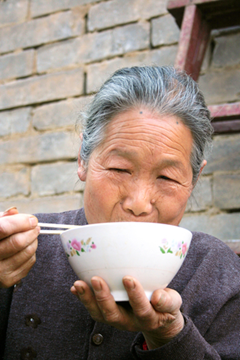Legislating Parental Care
By Dr. Henry Wong Meng Yeong | Thursday, October 24, 2013

A global challenge the world faces today is the rising silver tide of the elderly. Whilst advances in medicine have increased longevity, decreased birthrates have further heightened the need for care of parents and the elderly. In China, the one child policy has created the 4-2-1 conundrum, with a child having the arduous burden of supporting two parents and four grandparents. This is further exacerbated by the migration of the young flocking to cities in search of jobs, leaving the elderly to fend and care for themselves.
Recognizing the imminent problem, China is making inroads on relaxing the one child policy and at the same time legislating parental care, the onus of which in Chinese culture should fall on the children. With 9.1% of the population over 65years in 2011, desperate times have called for desperate measures, measures aimed at getting the young to support and care for elderly parents and grandparents. For those who fail their filial duty, the state has put in place legislation to protect the elderly enabling them to sue their children for support, financially and emotionally.
Enforcing what was once a cultural given is precisely what Confucius feels is the wrong approach. If being filial is no more than providing food for one’s parents, then it is no different from feeding your dogs and horses, quips Confucius. Rules and regulations will not change behavior if the right values are not in place. How does one enforce love and respect for one’s parents?
Another global challenge the world faces this century is the eradication of corruption and graft which has toppled organizations and robbed many of jobs and savings. The implementation of rules and increasing surveillance with state of the art software has proven ineffective with the escalating reports of cases. How can regulations possibly prevent greed?
The solutions Confucius has for the two global challenges are one and the same – to instill virtues and moral compass. One will be able to kill two birds with one stone by devoting one’s attention and resources to nurturing values and virtues, which was his life’s goal.
On this score China is fortunate to have advantages over the rest of the world in addressing these challenges. Instead of implementing legal recourse for errant behavior, they could mandate the teaching and nurturing of values in schools, in homes and in government. Another advantage is that these values enshrined in thousands of years of Chinese culture and literature, are not foreign to the Chinese. In fact, the content from Confucian philosophy formed the basis of the imperial examinations from which government officials were selected. Perhaps it is time to reintroduce learning of the classics which was prohibited during Chairman Mao’s cultural revolution. The reinforcement of these values will in the words of Confucius achieve 平天下a prosperous and harmonious world.
